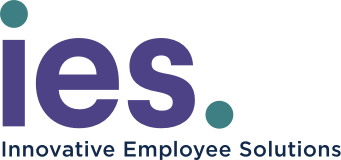If you are thinking about expanding your organization to a different country or state, or if you are looking to expand your talent pool by hiring outside of your state or country, it might be time to consider an employer of record (EOR). Business leaders spend considerable time and resources recruiting talent, processing payroll, marketing their business, and driving revenue. If expanding your reach is at the center of your growth strategy, it’s time for an EOR partner.
An EOR is an agency that acts as the legal employer from a legal, tax, and compliance perspective. Specifically, an EOR is responsible for hiring employees (including remote and contingent workers), compliant onboarding, payroll processing, tax withholding and filings, access to benefits, and HR support. An EOR partner allows companies to hire nationwide and globally and engage the talent they need in a compliant manner without having to set up a business entity in that state or country.
If you are curious about working with an EOR, take some time to research your options to determine what might work best for you and your business. This includes gaining a greater understanding of how it works, the benefits, and any drawbacks. The more you know, the better you can leverage this type of partnership.
A General Guide to an Employer of Record
If you are new to the idea of an EOR, think of an EOR as one of the most important expansion tools you have. That’s because they enable you to scale your workforce across the country or across the globe quickly and compliantly. Here’s an overview of the benefits and drawbacks of EOR services so you can make a decision that works best for your company:
The Benefits of an EOR
There are several benefits of partnering with an EOR to expand nationwide or globally. First, EORs save companies significant time by handling onboarding, payroll, and other HR-related duties for these groups of workers. Plus, if your business is unfamiliar with how to engage talent globally, an EOR can guide your efforts, keeping you compliant with all local employment laws. This allows you to engage international talent without the hassle and financial burdens of setting up an international entity. Partnering with an EOR enables you to engage the talent you need quickly and compliantly, allowing you to focus on what you do best.
The Drawbacks of an EOR
There are some perceived disadvantages of an EOR, one being that some workers might prefer to be hired directly by a company rather than a third party. In this case, you have to navigate this discussion in the recruitment and hiring process to ensure clarity of the employment relationship. Another perceived disadvantage is potential co-employment concerns. When relying on an EOR to ensure compliance with employment laws, it is important to understand co-employment and how it is best managed and mitigated. This concern can be addressed by vetting your EOR partner to ensure it has experience, longevity, and the proper business setup to operate compliantly. A strong EOR partner will have a program designed to mitigate the risks and allow for a strong engagement.
As your business grows, there are many considerations on how to best grow your workforce nationally or globally. Partnering with an EOR helps to remove barriers to your growth, allowing you to engage the right talent your business needs quickly and compliantly. If you are ready to grow your business and learn more about EORs, contact Innovative Employee Solutions (IES) today.
Written by: Sara Jensen, Senior Vice President of Growth and Strategy at IES
Sara Jensen is the senior vice president of growth and strategy at Innovative Employee Solutions (IES), a leading global employer of record in more than 150 countries that specializes in payrolling and contractor management services for today’s contingent workforce. Founded in 1974 in San Diego, IES has grown into one of the city’s largest women-owned businesses and has been named one of its “Best Places to Work” for 10 years in a row.







